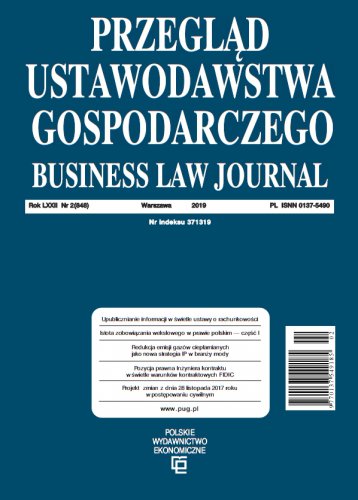The application of artificial intelligence in finance is one of the new issues which, in addition to regulatory challenges of hard law nature, raise ethical questions. This study deals with the subject of ethical aspects of the use of artificial intelligence in the financial sector, which is becoming more and more common, and therefore sometimes "invisible" to the end user. Examples of its use can be found, among others in risk assessment models or systems for detecting fraudulent transactions and counteracting money laundering and terrorist financing. Increasingly, they are also used to assess the creditworthiness of a potential borrower or provide investment advice. In the latter cases, transparency and ethics take on a special meaning, because they directly "touch" the human sphere and can significantly affect the observance of fundamental rights. At the same time, finding the "happy medium" that will not only balance various interests, but also be realistic to implement, is not an easy task. It is often emphasized in the literature that today there is no positive (any?) Effect on the implementation of many postulates in the field of ethical AI (Dubber et al., 2020), in connection with the use of various codes of ethics or good practices, which are more based on the so-called self-regulation or self-governance, that is, self-determination practices that are then audited by the settler. At the same time, the dynamic development of algorithms, especially those that make (to some extent) autonomous decisions, means that supervision — also ethical — cannot be temporary, but should be carried out continuously (Lo Piano, 2020), which only exacerbates the already existing problems related to algorithmisation.
Keywords: ethics; artificial intelligence; robo-advice

